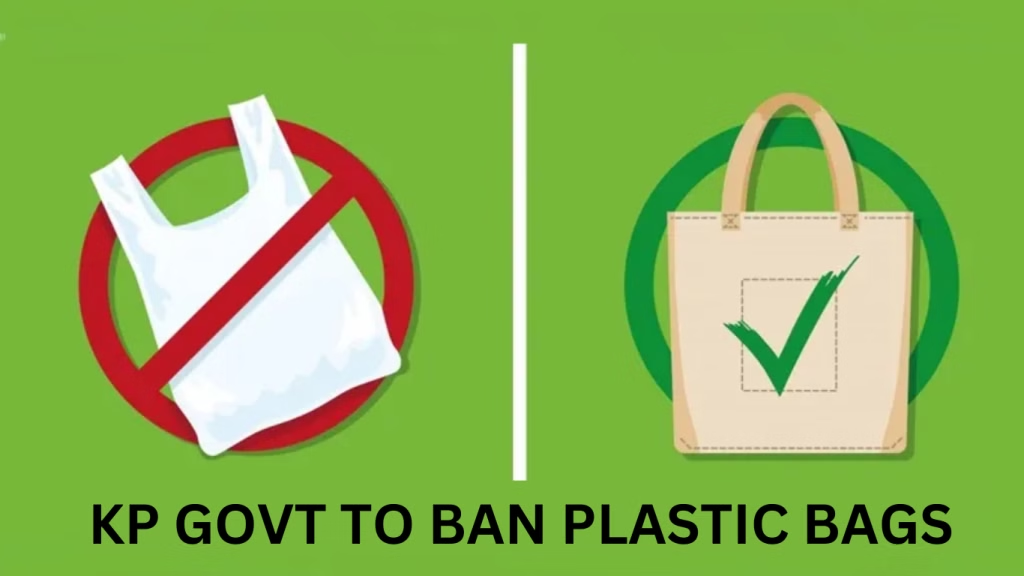In a significant step toward environmental sustainability, the Khyber Pakhtunkhwa (KP) government has announced a complete ban on plastic bags within the next three months. The decision is part of a broader initiative aimed at tackling pollution and promoting eco-friendly alternatives across the province.
According to officials, the plastic bag ban will be implemented after extensive consultations with stakeholders, including local businesses and environmental experts. This move is seen as a proactive step in combating the harmful effects of plastic waste, which has long been a serious environmental issue in Pakistan.
The government has already started working on raising public awareness about the dangers of plastic bags and encouraging the use of biodegradable and reusable bags. As part of this campaign, the provincial government will collaborate with manufacturers to facilitate the production of environmentally-friendly alternatives.
The plastic ban will be enforced across all sectors, including retail stores, markets, and vendors. The KP government aims to ensure smooth implementation by giving businesses and citizens three months to transition to more sustainable practices. After this grace period, strict penalties and fines will be imposed on those who continue to use or sell plastic bags.
KP’s plastic bag ban follows the success of similar initiatives in other parts of the country, including Islamabad and Punjab, where local governments have also introduced policies aimed at reducing plastic waste. The KP government’s efforts are part of a larger national strategy to curb the environmental damage caused by plastic pollution and align Pakistan with global efforts to reduce plastic waste.
The harmful effects of plastic bags on the environment and public health are well-documented. Plastic bags, which take hundreds of years to decompose, contribute to clogged drainage systems, pollution of water bodies, and harm to wildlife. By banning plastic bags, KP hopes to reduce the environmental footprint and pave the way for cleaner, greener cities.
KP’s Minister for Environment stressed the importance of this initiative, stating that the ban would lead to long-term benefits for both the environment and public health. “We are committed to creating a cleaner, healthier future for our province,” he said, emphasizing the need for collective action to achieve these goals.
The ban on plastic bags is part of KP’s broader Green Growth Initiative, which includes efforts to promote renewable energy, improve waste management systems, and protect natural resources. The provincial government is also working to plant millions of trees under the Billion Tree Tsunami project, further solidifying its commitment to environmental sustainability.
As the countdown to the ban begins, citizens are encouraged to start using reusable bags and other eco-friendly options. This move is expected to set a precedent for other provinces, pushing the country toward a more sustainable and environmentally conscious future.
